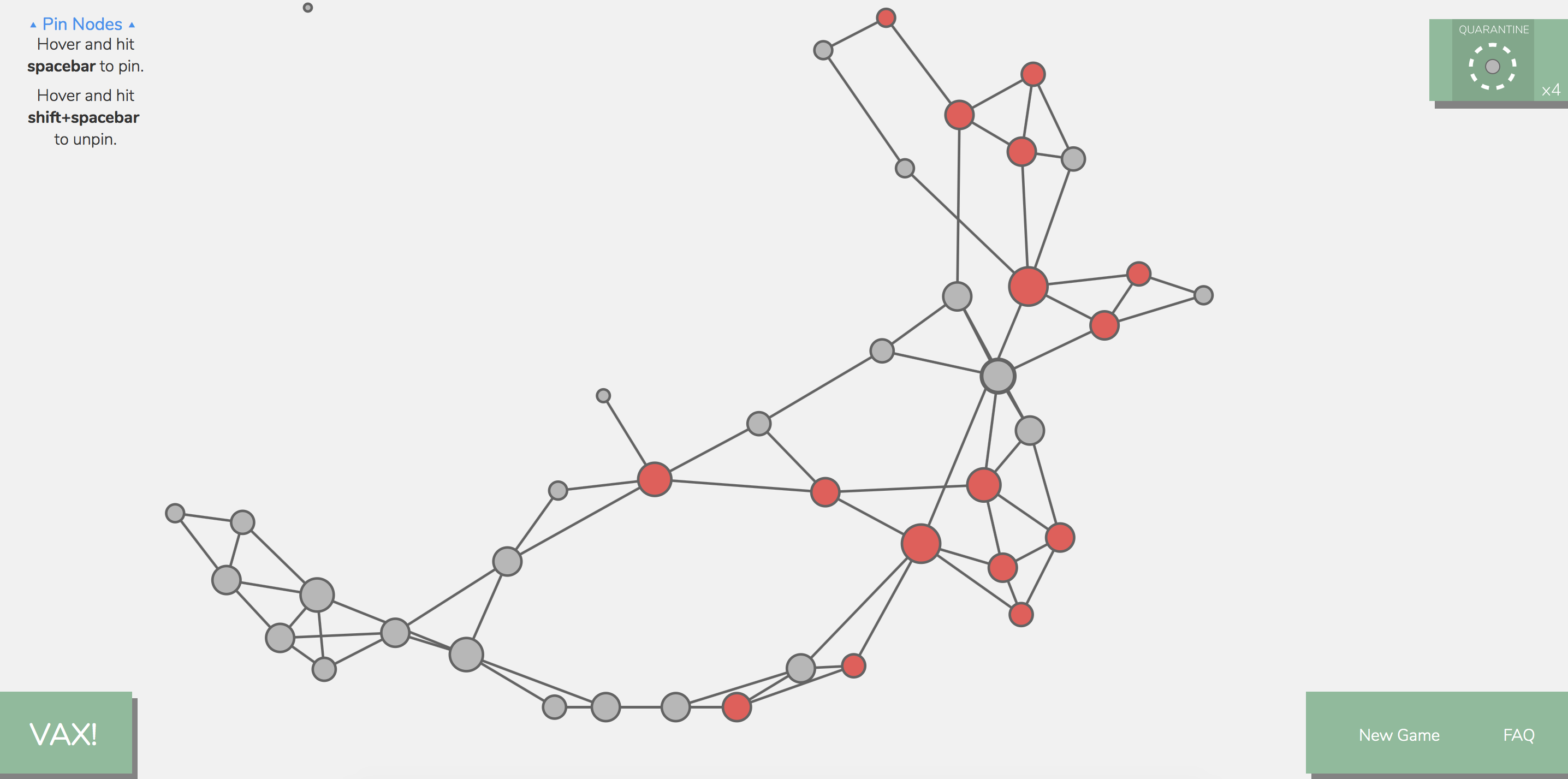In 2014 UNICEF announced that polio had been eradicated in India, one of the last strongholds of the disease. The World Health Organization is optimistic that by the end of next year, polio will be eradicated worldwide. The reason: a very effective vaccination campaign.
And polio would not be the first horrible disease to vanish like that. The WHO announced smallpox as extinct in 1979. Tuberculosis and leprosy are on the verge of extinction too. All because of vaccines. Vaccines for ebola and zika have just been announced, and there is good hope that vaccine for HIV is on the horizon. Vaccines are great.
Infectious diseases, in some sense, live on a network, namely, the network of physical interactions between people. For the disease to infect you, you need to be close to someone who is already infected. So someone who has many contacts is much more dangerous than someone who is home alone all the time. When an epidemic breaks out and there is not enough vaccine to give it to everyone, or not enough time to distribute it to everyone, it makes sense to start with the people who are most central in the network. This is known as targeted vaccination. (Certain people, like children and the elderly, have lower resistance to diseases, making them more likely to get sick if infected: this also needs to be taken into account.)
The Digital Epidemiology Lab at EPFL (the Swiss national research institute in Lausanne) developed a little game called Vax!, illustrating how this targeted vaccination works. Playing it, you will quickly figure out how to best spread a limited number of vaccines for maximal protection. (The game is of course an almost complete abstraction of reality, but it gets the point across.)
Although vaccines are hugely successful globally, some troubling developments are happening in the western world. More and more people are choosing not to vaccinate their children against serious childhood diseases like the mumps. Some parents choose not to vaccinate their children out of religious beliefs, others because of the (scientifically completely debunked) belief that vaccines can cause autism. Because the mumps is highly infectious, this has led already to an alarming number of epidemic outbreaks (so serious that Wikipedia keeps a list!)
When you reach the third level of the game, you encounter these “anti-vaxxers” and quickly learn that their refusal to vaccinate puts other people at much greater risk. Even a few of them can rapidly accelerate the spread of the disease. This way the game illustrates an important societal problem: choosing not to vaccinate may not only harm you or your child, but also many others, especially those that are most vulnerable! (For instance, babies too young to be vaccinated, or older people for whom the vaccination has worn off.)
So if you are worried about vaccines, or know someone who is, seriously consider doing some (unbiased) research into the matter before you decide against it. There may be more at stake than you had imagined. And if the matter was already clear to you, you can still enjoy the game!
You can read more about the safety and importance of vaccinations here:






